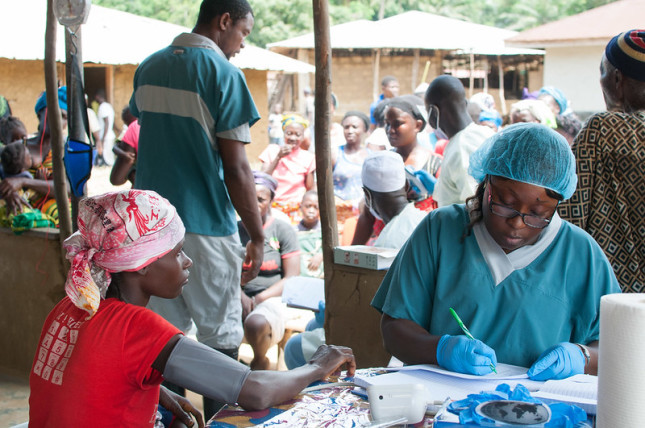-
Strengthening Fragile States: Why It Makes Sense to Invest in Global Health
July 21, 2020 By Magdalena Baranowska
Fragile states, where 1.8 billion people live, continue to be where one is most likely to find extreme poverty, violent extremism, and those most vulnerable to natural disasters and pandemics, said Nancy Lindborg, President and CEO of United States Institute of Peace, at a recent Truman Center event on the ties between national security, global health, and development. Those governments that do not have the capacity to meet the needs of their people, she said, also tend to be the ones that cannot manage external shocks.
We miss the upstream issue when we aim to solve violent extremism—a symptom of fragile states—with military force, said Lindborg. In fragile states, whose governments do not meet their residents’ basic needs, it’s easier for extremist groups to find recruits, she said. To solve the problems posed by fragile states, we must first recognize the importance of global health and its connection to development, said Lindborg. Having excellent global health systems is a national security issue, said Lois Quam, President and CEO of Pathfinder International. “It’s as significant as any investment, as anything we do in the military or at the Pentagon.”
When comparing the global response to Ebola and COVID-19, Lindborg noted that the world mobilized in a significant and collaborative way. While the current pandemic is much larger than Ebola, which was centered in three West African nations, international efforts prevented Ebola from becoming a global pandemic. Back in 2014, when the first case of Ebola reached the United States, the U.S. military mobilized. And the United States, France, and China each took the lead in one of the three focus countries. Other countries also offered assistance. The World Health Organization was underpowered in terms of its ability to mount an emergency response, said Lindborg, but a new UN structure was created to address Ebola. In a time of global challenges, she said, we need international systems that allow the kind of global cooperation that’s essential, to fighting global crises, whether it’s a pandemic or climate change.
One way to strengthen global health and address fragility is to elevate the status of women, said Quam. Women, as both family caretakers and community health-care workers, make the crucial initial decisions in health-related crises. “The first warning sign of a pandemic is not an ambulance siren, it is not at the hospital door,” said Quam. “It is somebody telling a woman—usually almost always, a mother, a grandmother, an auntie—that they don’t feel good.”
And that woman then makes all the crucial early decisions. “Women are the resilient innovators in every situation of distress on behalf of their family and their communities,” said Quam, underscoring the importance of empowering women in global health development work. If we give them the tools that they need, said Quam, women globally will be a force in this pandemic or a force that builds global health capacity as an early warning system.
 A Publication of the Stimson Center.
A Publication of the Stimson Center.



